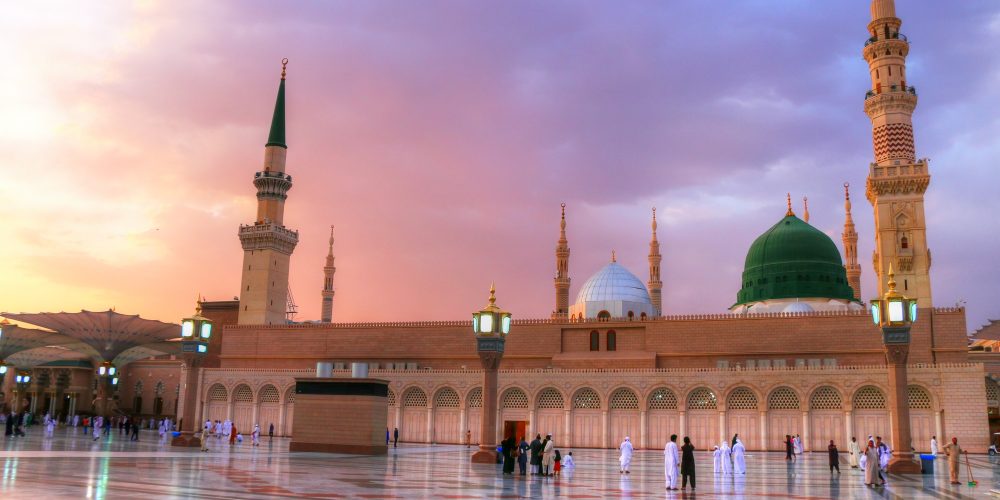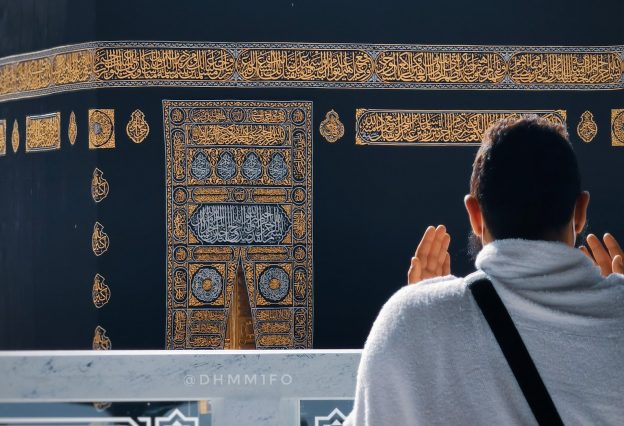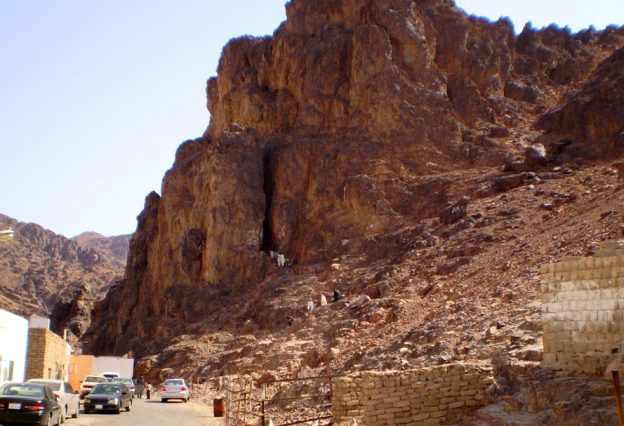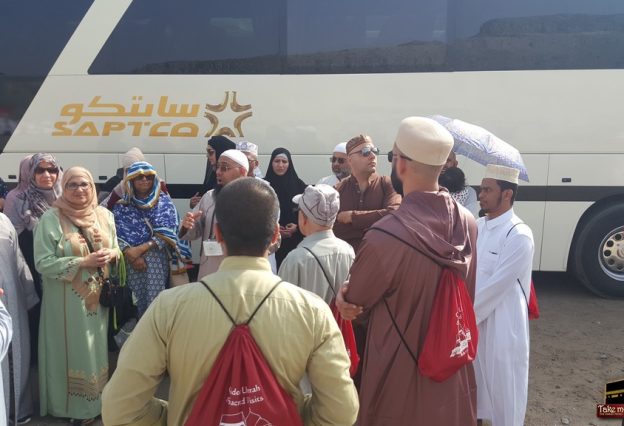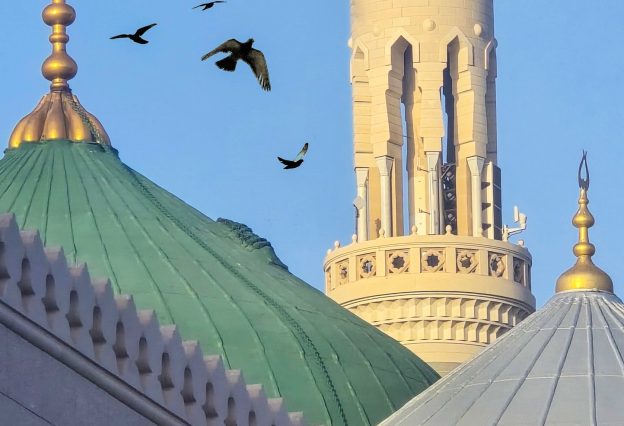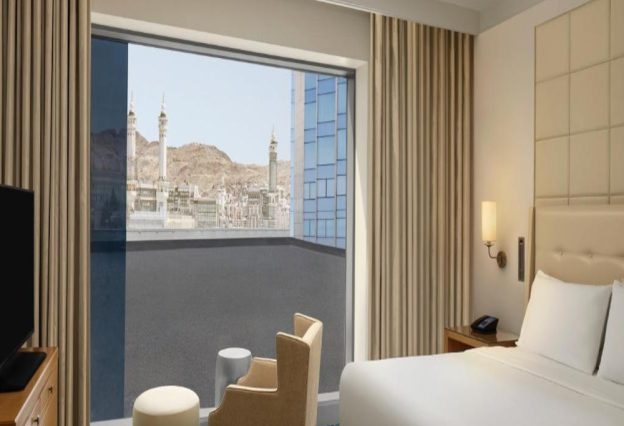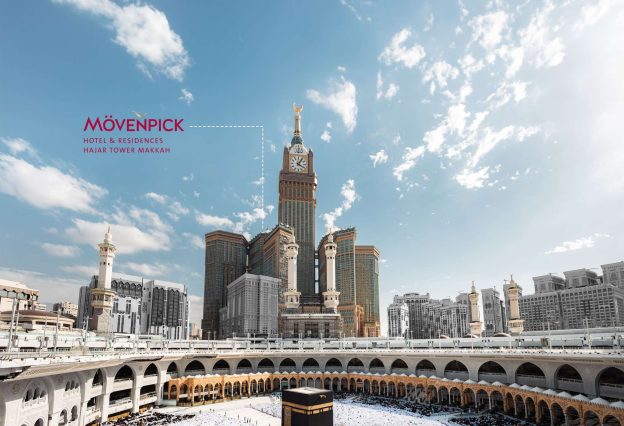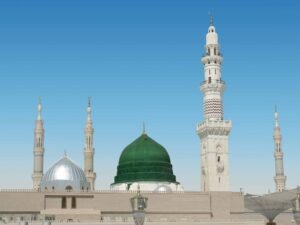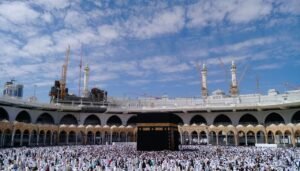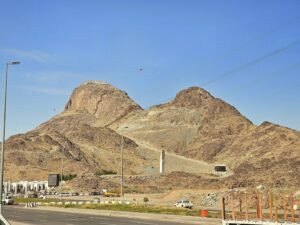Jabir ibn Abdullah I narrates:
There is no Muhrim who exposes himself to the sun all day for the sake of Allah, reciting the Talbiyah until the sun goes down, but his sins will disappear and he will be as he was on the day his mother bore him. Ibn Majah Vol. 4, Book 25, Hadith 2925
Sahl bin Sa’d I narrates:
The Messenger of Allah (saw) said: ‘There is no Muslim who says the Talbiyah except that – on his right and left, until the end of the land, from here to there – the rocks, or trees, or mud say the Talbiyah.’ Ibn Majah Vol. 4, Book 25, Hadith 2921
Once you enter the state of Ihram for Hajj or Umrah, you start reciting the Talbiyah. Because you will recite it perhaps hundreds of times, it is extremely important and useful to know the beautiful dimensions of the Talbiyah. This way, every time you say it you will taste a different sweetness of talking to Allah [swt]. You will repeat it with love, passion and eagerness.
Each statement of the Talbiyah has layers upon layers of meanings. By remembering these meanings while saying the Talbiyah, your connection with Allah [swt] will be strengthened and your Hajj or Umrah will become a truly memorable one.
What is the Talbiyah?
Jabir ibn `Abdullah said, describing the Hajj of the Prophet (pbuh): “Then he (pbuh) started to say the words of Tawhid, Labbayka Allahumma labbayk, labbayka la sharika laka labbayk. Inna al-hamd wal-ni`mata laka wal-mulk, la sharika lak. [Muslim].
The way most people say it is in six parts, like below, with brief pauses in between:
- Labbayka Allahumma labbayk, (Here I am, O Allah, here I am)
- labbayka la shareeka laka labbayk. (Here I am, You have no partner, here I am)
- Innal-hamd (Verily all praise and thanks …)
- wan-ni`mata (… and all blessings…)
- laka wal-mulk (… and all sovereignty are Yours)
- la shareeka lak. (You have no partner.)
The Virtues of the Talbiyah
This beautiful hadeeth lays out the virtues of saying the Talbiyah: The Messenger (pbuh) said: “There is no Muslim who recites the Talbiyah but whatever is to his right and to his left of stones, rocks and clods (lumps of earth or clay) recites it with him, to the furthest point to the east and the west – meaning from his right and his left.” [At-Tirmidhi, Ibn Khuzaymah, and al-Bayhaqi].
Therefore, while you recite, use your imagination and feel the echo in the valleys, mountains, and plains of everything around you repeating it. Feel the partnership of all of the creation around you joining you as recite the Talbiyah, Allahu Akbar!
Six parts of the Talbiyah
Let us look at each of these parts one by one, as explained by different scholars.
1. Labbayka Allahumma labbayk
Here I am, O Allah! Here I am
“Here I am” is repeated to show that the response is lasting and ongoing. This is the response to the call of Allah [swt], given by Ibrahim (as), as mentioned in Al-Quran: “And proclaim the pilgrimage among men: they will come to thee on foot and (mounted) on every kind of camel, lean on account of journeys through deep and distant mountain highways.” [Al-Hajj 22:27]
Labbayk.. Labbayk; this repetition also means, I submit and submit again. I will always be in submission to You O Allah!
‘Labba bil-makan’ in Arabic means staying in one place, clinging to it. Therefore Labbayk means “I am persisting in obeying You, O Allah! I will stick to Your obedience and submission.”
“Labbayk (Here I am at Your service)” is said to a person whom one loves and respects. Therefore, your statement along with repetitions expresses Your love for Allah [swt]. Other meanings of this word are also reported by scholars.
2. Labbayka la shareeka laka labbayk
Here I am, You have no partner, here I am
This part emphasizes your eagerness to be free from Shirk (associating partners with Allah [swt]). Shirk is such a dangerous crime that Allah [swt] will never forgive it.
The feelings that one can have as we say it are:
-O Allah! I am only for You!
-I have no other intention except to please You because there is no partner to You.
Of course, you can think of many more dimensions in this regard.
3. Innal-hamda
Verily all praise and thanks belong to You
Hamd means praise and thanks. When it comes to praise, you can think of a number of things. Allah [swt] has more than 99 Names and for each of His names, you can praise Him. So right there you have 99 ways to praise Him! For example, O Allah! You are the best in showing intense mercy (Ar-Rahman), the best in showing continuous mercy (Ar-Raheem), the best Creator (Al-Khaliq), and so on.
When it comes to thanking Allah, the list can be endless here too. Some of these are mentioned in the blessings below.
4. Wan-ni`mata
Verily, all blessings belong to You
You can first start acknowledging His blessings on you for giving you the opportunity to perform Hajj or Umrah. Furthermore, the list can be; ‘Thank You, O Allah for Your countless blessings as:
– performing Hajj or Umrah in spite of all my sins and deficiencies
-giving me enough money to afford it
-keeping me healthy, keeping me free from any constraints or pressures
-helping me plan for it, providing me facilities of travel and stay
-providing me with safe transport and safe passage
-giving me the tongue and the voice to thank You
-giving me a chance to thank You with my heart
In addition to thanking Allah [swt] for giving the opportunity to perform Hajj or Umrah, you can start thanking for everything you have in terms of:
-your sound body parts like eyes, ears, nose, etc;
-mother, father, brothers and sisters, your spouse, children, teachers, colleagues, friends;
-safe house, safe country, safe earth, safe solar system, safe universe, etc;
– major blessings such as Islam, Iman, being born in the Ummah of Prophet Muhammad [pbuh], giving the understanding of Islam, and so on.
– at the end, don’t forget to thank Allah for giving an opportunity to thank Him, with sincere realization that our thanks are full of deficiencies.
This style of praise and thanking can also be repeated after every Salah when you repeat 33 times Alhamdulillah!
5. Laka wal-mulk
Verily, all sovereignty belongs to You
Not only the blessings are Yours but the power, the kingdom, the sovereignty, the dominion all belongs to You alone. That is true for:
-This country
-This earth along with all its powers and richness
-The wind, the rains, the light, and the darkness
-The moon, the sun, the stars, the quasars, the black holes, the galaxies
– The creatures on earth and the sea and those in the skies; the humans, jinns and angels
O Allah! You have absolute, full, complete control and power on everything.
6. La shareeka lak
You have no partner
No partner to You in praise, thankfulness, and in sovereignty. Everything that I have is only from You. I will always remain Your and only Your slave. I will not:
-Have any hopes in anyone other than You
-Be afraid of none other than You
-Ask anyone other than You
-Be impressed by anyone other than You
-Love anyone more than You.
The beauty of being One
You can keep reflecting on these different meanings every time you say the six parts. Make sure to ask Allah [swt] to help you go deeper in the meanings of the Talbiyah as you repeat it again and again.
‘La shareeka lak’ (You have no partner) is repeated in the first and in the last part of the Talbiyah. Let us say it realizing the danger of shirk. Let us beg Allah [swt] to make us true in Tawheed (oneness of Allah).
I still remember a young man walking alone on his way from Arafat to Mina with his eyes focused on the road close to his feet repeating the Talbiyah out loud with love and passion. He was not bothered at all with what was going on around him. It was him and his Creator and I can still feel the love and the warmth in his recitation. I wish and pray all of us could say the Talbiyah with this warmth, or even better.
Proclaim your passion!
Some people unnecessarily feel shy to say the Talbiyah loud; it is Shaytan who whispers to you to avoid saying it loudly. You are there in Hajj or Umrah in front of Allah [swt]. Allah blessed you with that huge award of coming to His House. Don’t waste this huge opportunity of saying it loudly.
You say it slow and you perhaps will miss the witness of and the interaction with those stones, rocks and clods around you because they did not hear you! Don’t forget, these are the stones, rocks, and clods of Makkah, the best of the lands! However, for women, they should not raise their voice above what is needed to hear themselves.

